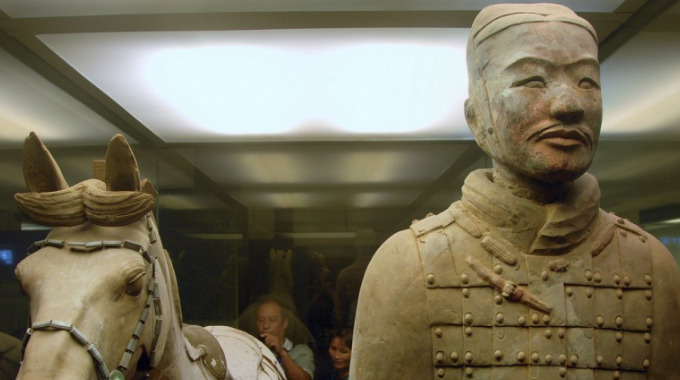Why the Tomb of China’s First Emperor Remains Unopened After Over 2,200 Years
The tomb of Qin Shi Huang, China’s inaugural emperor, has remained untouched for more than two millennia — and for good reason. Chinese archaeologists have deliberately chosen not to open this monumental burial site, located near Xi’an, citing concerns over potential irreparable damage, environmental hazards, and even the presence of deadly traps.
Discovered by chance in 1974 by farmers in Shaanxi province, the tomb ranks among the most significant archaeological finds of the 20th century. Despite extensive exploration of the surrounding area, the tomb chamber itself has never been excavated.
Historical and scientific experts share a cautious consensus. One of the earliest accounts, penned by the renowned Chinese historian Sima Qian approximately a century after Qin Shi Huang’s death, describes elaborate traps armed with bows and arrows designed to defend the tomb. He also mentioned the use of mercury to mimic rivers and seas — a detail that has proven more than mere legend.
Modern research supports some of these ancient writings. Elevated mercury levels have been detected in the vicinity of the tomb, suggesting that the historian’s descriptions might hold factual basis. A 2020 study warned of potential leakage of this toxic element through cracks that have formed over centuries.
Beyond the risks posed by traps and toxic substances, a significant obstacle is the current lack of advanced technology capable of safely exploring the interior. Experts argue that any invasive intervention in such a sealed environment—untouched for thousands of years—could cause irreversible damage to priceless relics and the tomb’s integrity.
Presently, scientists are focusing on non-invasive techniques such as ground-penetrating radar and wave scanning. These methods aim to reveal the tomb’s internal structure without physical intrusion. However, so far, results have been inconclusive, preventing a decision to open the tomb.
Cultural and ethical considerations also play a crucial role. Traditional Chinese values emphasize respecting the dead, especially those of historical significance. Authorities have declared that the tomb of Qin Shi Huang will remain closed until a fully secure and non-destructive method of exploration is available.
Qin Shi Huang, who reigned from 221 to 210 BC, is renowned for unifying China, initiating the construction of the Great Wall, and establishing a centralized system of governance that reshaped Chinese history. His vast tomb, guarded by a silent army of clay soldiers, remains one of the greatest archaeological mysteries — a treasure trove waiting for the right moment and method to unveil.




